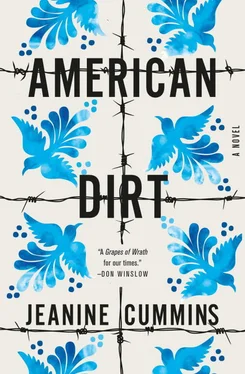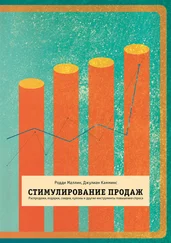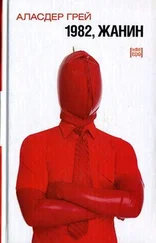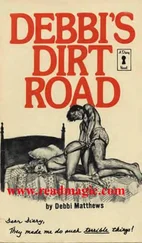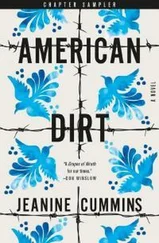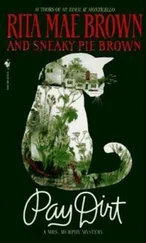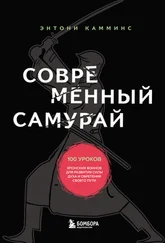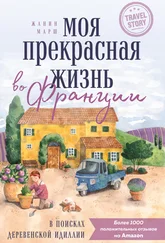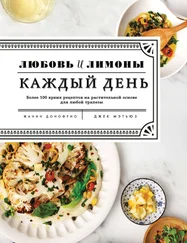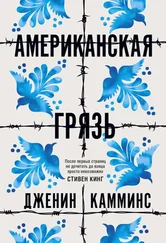Жанин Камминс - American Dirt
Здесь есть возможность читать онлайн «Жанин Камминс - American Dirt» весь текст электронной книги совершенно бесплатно (целиком полную версию без сокращений). В некоторых случаях можно слушать аудио, скачать через торрент в формате fb2 и присутствует краткое содержание. Город: London, Год выпуска: 2020, ISBN: 2020, Издательство: Tinder Press, Жанр: Современная проза, на английском языке. Описание произведения, (предисловие) а так же отзывы посетителей доступны на портале библиотеки ЛибКат.
- Название:American Dirt
- Автор:
- Издательство:Tinder Press
- Жанр:
- Год:2020
- Город:London
- ISBN:978-1-4722-6138-0
- Рейтинг книги:5 / 5. Голосов: 1
-
Избранное:Добавить в избранное
- Отзывы:
-
Ваша оценка:
- 100
- 1
- 2
- 3
- 4
- 5
American Dirt: краткое содержание, описание и аннотация
Предлагаем к чтению аннотацию, описание, краткое содержание или предисловие (зависит от того, что написал сам автор книги «American Dirt»). Если вы не нашли необходимую информацию о книге — напишите в комментариях, мы постараемся отыскать её.
FEAR KEEPS THEM RUNNING.
HOPE KEEPS THEM ALIVE.
Vivid, visceral, utterly compelling, AMERICAN DIRT is the first novel to explore the experience of attempting to illegally cross the US-Mexico border. cite empty-line
9
empty-line
11 empty-line
14
American Dirt — читать онлайн бесплатно полную книгу (весь текст) целиком
Ниже представлен текст книги, разбитый по страницам. Система сохранения места последней прочитанной страницы, позволяет с удобством читать онлайн бесплатно книгу «American Dirt», без необходимости каждый раз заново искать на чём Вы остановились. Поставьте закладку, и сможете в любой момент перейти на страницу, на которой закончили чтение.
Интервал:
Закладка:
Slim nods. ‘We’ll make it work.’
‘It’s only forty-five minutes, right?’ David asks.
‘Thereabouts,’ the driver says.
David tries out a yanqui phrase he’s been saving. ‘Piece of cake.’
Luca’s heart thuds in his chest. They hear the engine start up, feel the rumble of vibrating machinery. The driver pulls on the steering wheel and tugs the curtain across behind his head.
‘Next stop, Tucson!’ the driver says loudly.
The drive is slow. Painfully slow. There are deep potholes and sharp bends and the road is wide enough for only one vehicle at a time, so in the event of oncoming traffic, the RVs must pull up and wait for the approaching car to pass. At length they turn onto a slightly wider road, and a short time later the man in the driver’s seat calls out quietly, ‘Border Patrol. Nobody move.’ The driver waves at the agents in the approaching vehicle, and they recognize him as one of the campers who’s been staying way out, south of the Lobo Tank these last few days. The agents’ names are Ramirez and Castro, and they think about pulling the guy over, checking his RV for wets. But he’s a white guy with a cowboy hat and a mustache that looks like it’s been growing on his face since before they became ironic. Besides, their shift is almost over. Nobody wants to do paperwork during happy hour. They salute him, and squeeze their Chevy Tahoe past the RV with inches to spare. In back, the migrants hold their breath as they hear the tires of the passing vehicle crunch by just outside their window, and then the click click of the steering wheel when the driver centers the RV on the road again. And now they’re rolling.
‘All good,’ the driver calls.
Luca pins himself in next to Mami in a small dark place. He curls into her even though there’s enough room, pressing against Mami as if his life depends on her proximity, because now that they’re here, now that it’s this close, now that they’re minutes away from starting their new life, he doesn’t want to. In some primal way, he knows that once they’re safe, the monsters he’s so far managed to repel will come crashing in, and now there will be new monsters with them. A horde. He can feel them clawing at the door. But not yet.
He squeezes into her. Mami folds her arm around him and tucks the fingers of her hand beneath his rump. She fits him in there and makes herself his shield once more. She pulls his small hand toward her in the darkness and uncurls his fingers. She slips the loose gold halo of Papi’s ring around his outstretched pinky. The road beneath them dips and rolls. They cross the startling rumble of a cattle guard, and Luca presses his head against her chest. She wraps her hand around his forehead and closes her eyes. One final jolt of the ungainly RV, and suddenly there’s the level promise of pavement beneath their tires.
The Border Patrol checkpoint is closed, as anticipated. They roll through without stopping, and the twin RVs gather speed as they strike north through the gathering dusk. Soledad and Rebeca nearby tip their heads together, and lace their fingers together, and cast their breath together. They are motionless and moving at once. They each have secrets now. And yet, despite everything they’ve suffered, at this moment together, they’re full of something bigger than hope.
Lydia can’t see it from the dark place where she is, but she can sense it. She knows it’s that perfect time of day out there in the desert. She imagines the colors making a show of themselves outside. The glittering gray pavement, the aching red land. The colors streaking flamboyantly across the sky. When she closes her eyes she can see them, the paint in the firmament. Dazzling. Purple, yellow, orange, pink, and blue. She can see those perfect colors, hot and bright, a feathered headdress. Beneath, the landscape stretches out its arms.
EPILOGUE
Fifty-three days, 2,645 miles from the site of the massacre.
It’s not the little adobe house in the desert Lydia imagined. But there is the yellow school bus, and Luca does board it every morning with a clean backpack and a new pair of sneakers. He doesn’t wear Papi’s hat anymore because it’s too special. It’s taken on a museum quality. It stays on top of his blue dresser along with his other treasures: Abuela’s rosary and an eraser shaped like a dragon that Rebeca got him. Luca’s hair is neatly cut and shampooed to smell like Papi’s now, with a trace of mint. The bus comes to the end of their tree-lined block, and when Luca gets on it, he does so with two Honduran children, an Ecuadorian girl, a Somali boy, and three estadounidenses . Lydia slips her finger inside Sebastián’s ring every morning when that bus pulls away. Today will not be the last day I ever see our child .
She has work cleaning houses. Her mother would have thought this the greatest irony. Lydia, whose house was never quite clean enough. The money’s not good, but it’s a start. They live with the girls’ cousin César and his girlfriend. The girlfriend’s tía lives here, too, and everyone contributes what they can. They take turns shopping and cooking.
Lydia’s English is a help, but there are many different languages in el norte . There are codes Lydia hasn’t yet learned to decipher, subtle differences between words that mean almost, but not quite the same thing: migrant, immigrant, illegal alien . She learns that there are flags people use here, and those flags may be a warning or a welcome. She is learning. Bookstores, invariably, are a refuge. There’s one in the town where they live, and the first time Lydia ventures in, it takes her breath away. She has to steady herself against a shelf. The smell of coffee and paper and ink. It’s nothing like her little shop back home. It’s stocked mostly with religious books, and instead of calendars and toys, they carry rosaries, Buddha figurines, yarmulkes. Still, the upright spines of the books are bedrock. Steady. There’s an international poetry section. Hafiz. Heaney. Neruda. Lydia flips past the twenty love poems and reads ‘The Song of Despair’. She reads it desperately, hungrily, bent over the book in the aisle of the quiet shop. Her fingers ready the next page while she devours the words. The book is water in the desert. It costs twelve dollars, but Lydia buys it anyway. She keeps it tucked into the waistband of her pants where she can feel it against her skin.
Lydia tries not to feel jealous when they wake up together and Luca tells her, his eyes still sticky with sleep, that Papi visited him in his dreams again last night. Lydia curls around him as if she can absorb the visit with her body.
‘What did he say?’ she asks Luca.
‘He never says anything. He just sits with me. Or we walk together.’
Lydia’s body throbs with longing. ‘That’s good, mijo .’
It’s almost a mile to the library, and they walk there together on Saturday mornings. On their third visit, the librarian invites them to apply for library cards, and when Lydia declines, the woman switches to Spanish and tells her there’s no danger to them, that they’re entitled to them regardless of their immigration status. Lydia is dubious at first, but if you can’t trust a librarian, who can you trust? She and Luca both get cards, and it’s miraculous, restorative, life changing. Rebeca comes with them sometimes, but Soledad never does.
The sisters are enrolled in school now, too, and it’s difficult for them. Not because their English is so minimal, or even because their schooling at home was rudimentary. They’re both smart, quick to learn. But their lives have been so expansive, their traumas so adult. They are young women, and now they’re meant to clip themselves into a three-ring binder each day. They’re meant to hang their jackets in lockers and flirt with boys in the hallways. They’re supposed to regress into shapes that were never familiar to them. They don’t understand the teenage expectations of el norte .
Читать дальшеИнтервал:
Закладка:
Похожие книги на «American Dirt»
Представляем Вашему вниманию похожие книги на «American Dirt» списком для выбора. Мы отобрали схожую по названию и смыслу литературу в надежде предоставить читателям больше вариантов отыскать новые, интересные, ещё непрочитанные произведения.
Обсуждение, отзывы о книге «American Dirt» и просто собственные мнения читателей. Оставьте ваши комментарии, напишите, что Вы думаете о произведении, его смысле или главных героях. Укажите что конкретно понравилось, а что нет, и почему Вы так считаете.
